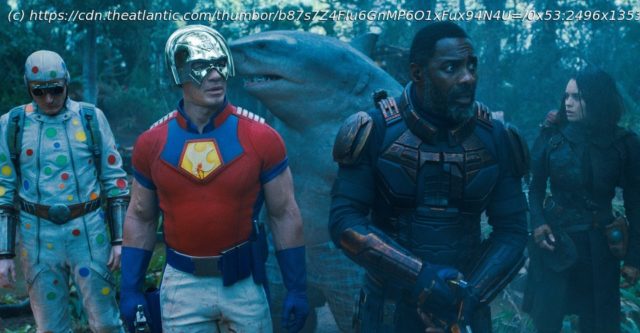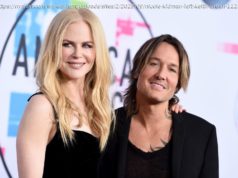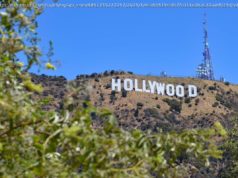In the film, edgy shock value meets Hollywood sentimentality, resulting in a superhero movie unlike most others in the genre.
The Suicide Squad might seem like a typical superhero movie at first: Yet another group of powerful comic-book characters is thrown together to fight insurmountable odds on a mysterious, deadly mission. Audiences will recognize a few faces from the last ( horrendous) Suicide Squad film, such as that of the chipper criminal Harley Quinn (played by Margot Robbie). But much of the fun comes from trying to puzzle out who the newcomers are, including a costumed hunk named T.D.K. (Nathan Fillion). When someone asks him what T.D.K. stands for, he replies, “It doesn’t stand for anything. It’s just my name. It stands for me.” “Your name is… letters?” “All names are letters,” another character shoots back. Hollywood is now deep in the superhero-movie craze. Every year another torrent of films about caped do-gooders dominates box offices. T.D.K. (whose name is in fact a cheeky initialism) is mostly a winking joke from the writer and director James Gunn about the sheer number of characters who have appeared in these works at this point. The comic-book source material is running out, forcing movies to resort to villains whose names are just … letters. Can viewers still love characters they’ve never heard of? Gunn knows the answer is yes, given that he launched the Guardians of the Galaxy franchise for Marvel, which also featured a little-known motley crew of champions. But in the looser world of DC Comics movies, which place less emphasis on narrative continuity and have no mandate to position individuals as long-term heroes, Gunn can finally do something truly novel: break the genre’s unspoken rules and mock its blustering morality.






